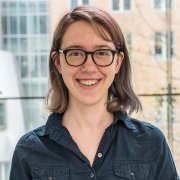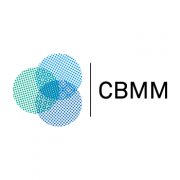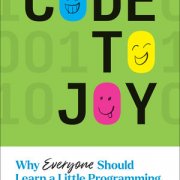May 6, 2025 - 4:00 pm
Singleton Auditorium (46-3002)
Nidhi Seethapathi, MIT
March 4, 2025 - 4:00 pm
Singleton Auditorium (46-3002)
Joel Leibo, Google DeepMind
February 11, 2025 - 4:00 pm
Singleton Auditorium (46-3002)
Thomas Serre, Brown University
December 3, 2024 - 4:00 pm
Singleton Auditorium (46-3002)
Kelsey Allen, Deep Mind
Kelsey Allen is a Senior Research Scientist at Deepmind. Her work surrounds cognitive science, machine learning, and robotics, with a focus on tool use and tool creation.
November 12, 2024 - 4:00 pm
Singleton Auditorium (46-3002)
Moderator: Tomaso Poggio
Panel: Ila Fiete, Philip Isola, Eran Malach, Haim Sompolinsky
Abstract: In a society that is confronting the new age of AI in which LLMs begin to display aspects of human intelligence, understanding the fundamental theory of deep learning and applying it to real systems is a compelling and urgent need.
This panel will introduce some new simple foundational...
This panel will introduce some new simple foundational...
October 31, 2024 - 10:30 am
The 54th annual Rosenstiel Award has been conferred on four remarkable neuroscientists who have deciphered how humans and other primates recognize faces.
We perceive faces in ways that differ from other objects, perhaps because they are so important to us. The 2025 Rosenstiel Prize honors Winrich Freiwald, Nancy Kanwisher, Margaret Livingstone, and Doris Tsao for discovering how and where in the brain face recognition occurs. Their studies on...
October 29, 2024 - 4:00 pm
Room 45-792
Eran Malach, Harvard University
Abstract: Modern machine learning models, in particular large language models, are approaching and even surpassing human-level performance at various benchmarks. In this talk, I will discuss the possibilities and barriers towards achieving human-level intelligence from a computational learning...
October 1, 2024 - 4:00 pm
Singleton Auditorium (46-3002)
Noah Goodman, Stanford University
Noah Goodman is a Professor of Psychology and Computer Science at Stanford University. His research surrounds computational models of cognition, cognitive development and social cognition, and probabilistic programming languages.
September 19, 2024 - 12:45 pm
The Schmidt Sciences Polymath Program funds high-risk, innovative projects by providing multi-year grants to top researchers in critical areas from AI to climate change.
NEW YORK—Six groundbreaking researchers have been awarded up to $2.5 million each over five years as part of the prestigious Schmidt Sciences Polymath Program. These individuals will join an international cohort of 21 Polymaths across six countries, recognized for their...
September 17, 2024 - 4:00 pm
Room 45-792
Lorenzo Rosasco, Italian Institute of Technology (IIT), Università degli Studi di Genova
Abstract: Supervised learning is the problem of estimating a function from input and output samples. But how many samples are needed to achieve a prescribed accuracy?
This question can be answered only by restricting the class of problems—for example, considering functions that don’t vary much. But...
This question can be answered only by restricting the class of problems—for example, considering functions that don’t vary much. But...
September 11, 2024 - 2:00 pm
By The Associated Press
LISBON, Portugal (AP) — Four researchers working in the United States are sharing a $1 million prize from a Portuguese foundation for their work on how the human brain distinguishes faces, shapes and colors.
Americans Margaret Livingstone of Harvard Medical School, Nancy Kanwisher of the Massachusetts Institute of Technology, and Doris Tsao of the University of California, Berkeley, and Germany’s Winrich Freiwald of...
September 10, 2024 - 4:00 pm
Singleton Auditorium (46-3002)
Michael Littman, Brown University
Abstract: It is immensely empowering to delegate information processing work to machines and have them carry out difficult tasks on our behalf. But programming computers is hard. The traditional approach to this problem is to try to fix people: They should work harder to learn to code. In this talk...
September 9, 2024 - 11:45 am
Making data (and code) useful for yourself automatically makes it useful for others.
By Samuel Gershman
This series of scientist-written essays explores the benefits and challenges of data-sharing and open-source technologies in neuroscience.
The field of neuroscience has witnessed a sea change in its attitude toward open science over the past 10 years. Thanks to mandates from journals and funders, the establishment of large-scale public...
September 6, 2024 - 1:00 pm
In animal models, even low stimulation currents can sometimes still cause electrographic seizures, researchers found.
David Orenstein | The Picower Institute for Learning and Memory
The idea of electrically stimulating a brain region called the central thalamus has gained traction among researchers and clinicians because it can help arouse subjects from unconscious states induced by traumatic brain injury or anesthesia, and can boost cognition...
September 5, 2024 - 11:30 am
Everybody is talking about some form of artificial intelligence, or AI, these days. But at MBL, two courses have been taking students into real-world, scientific uses of AI for years. Both courses have changed as the explosive growth in the AI field has made ever-more sophisticated tools available – and researchers are racing to add them to their own toolbox.
One course, called “Brains, Minds and Machines,” explores how new work in AI can...






![[hh580/ Canva]](https://cbmm-mit-edu.ezproxy.canberra.edu.au/sites/default/files/styles/people_180x180/public/news-events/66ebf6634565581ea0cdcaf5_Untitled%20design%20%288%29.jpg?itok=naM4WcI4)




